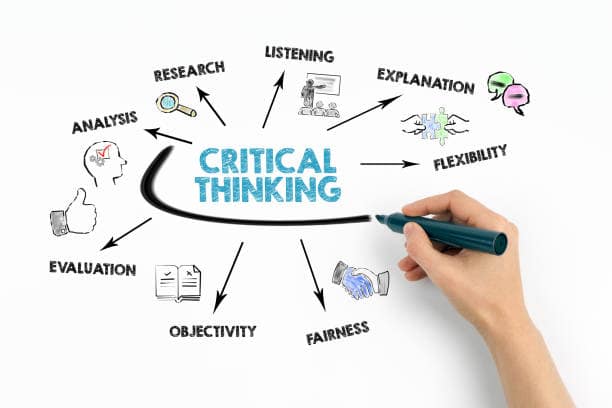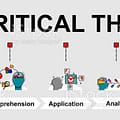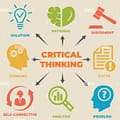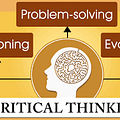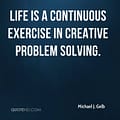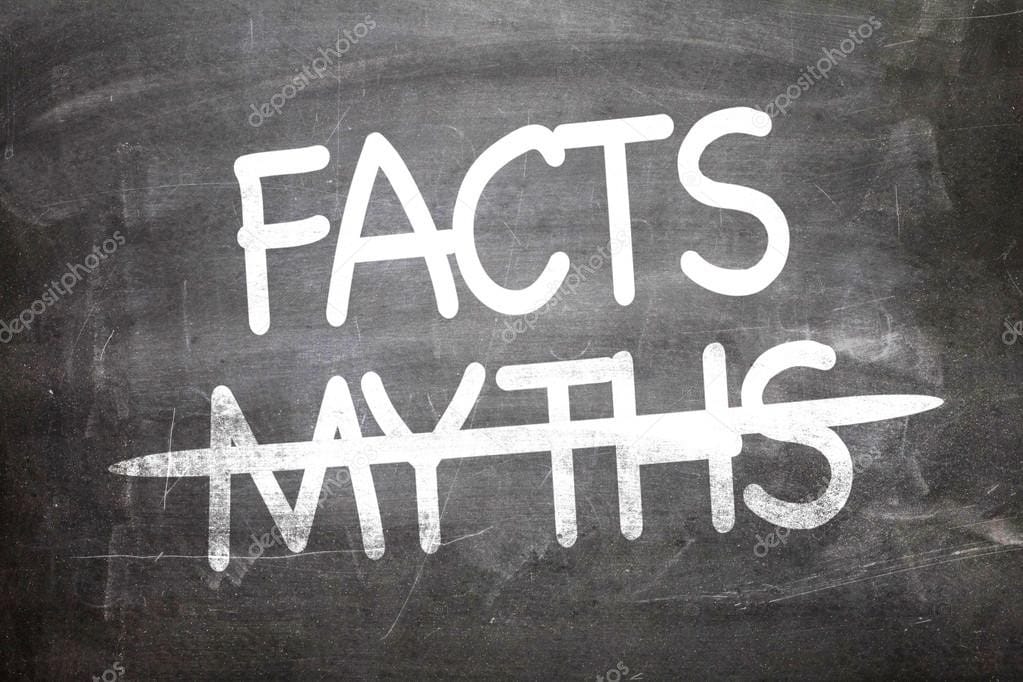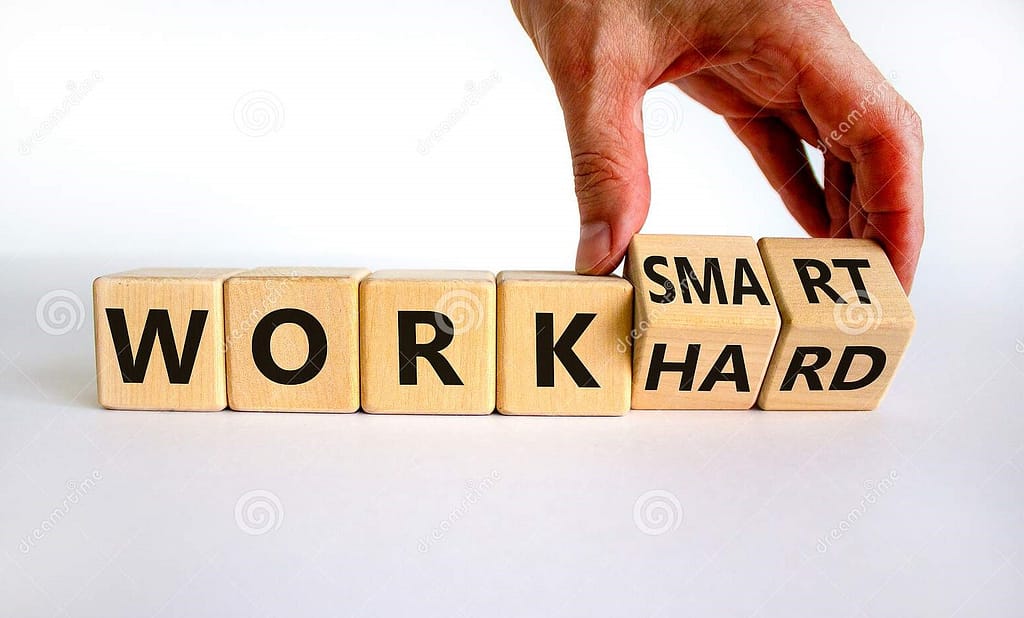“It is the mark of an educated mind to be able to entertain a thought without accepting it.”
– Aristotle
As you have read in the previous article on critical thinking, critical thinking is a mental process that involves conceptualizing, applying, analyzing, synthesizing, and evaluating the information to arrive at a conclusion or answer.
Critical thinking is necessary for organizations to prosper, businesses to thrive, and for a successful career as well as other aspects of life.
In an organization, there may be conflicts between the different layers of management or team members or the failure of a project. Critical thinking helps managers and leaders research and analyze the cause and arrive at constructive solutions.
In the same way, if there are problems like poor customer service, managers need to think critically to analyze and solve the problem so that they can provide better customer service.
Similarly, in a career, critical thinking helps managers and leaders analyze the reasons for poor growth or failure to reach the next level or poor relationships with team members and think of better solutions to progress and prosper or maintain healthy relations with team members.
If Managers and Leaders cannot think critically, they not only minimize their chances of climbing the ladder in their respective careers, but they also become easily susceptible to things like fraud and manipulation.
The inability to think critically can truly make or break a person’s career because the inability to process and analyze information effectively has massive consequences.
Critical thinking focuses solely on factual information and needs to be done objectively—meaning without being influenced by your personal feelings, opinions, or biases.
Critical thinking helps in analyzing an issue situation or fact, data, or evidence related to it and involves your decision-making ability, the way you use your judgments, and how you take actions to solve your problems.
It is a useful skill for solving all kinds of problems, big or small, and allows you to make logical and informed decisions to the best of your ability.
Critical thinking requires some effort and dedication on your part but gives you a good return for the time you invest in it.
Because critical thinking involves processes like- evaluation, assessment, reinterpretation, and disruption of your own as well as others’ thought processes, make well-informed decisions, it is therefore self-directed, self-disciplined, self-monitored and self-corrected.
Kris Potrafka, founder and CEO of Music Firsthand says,-“The ability to think critically is more important now than it has ever been.”
Everything is at risk if you don’t learn to think more critically.
Therefore developing your critical thinking skills is something that takes concentrated work.
This is no easy task.
Critical thinking is a complex process involving different steps
In this post, I have broken down the basic components of critical thinking and made them into 6 easy steps to help you develop the critical thinking habit and become a great critical thinker.
Here are the 6 easy steps of critical thinking which will help you understand the process involved at each step.
Do you want to become a Brilliant Critical thinker ? Get the 58 Brilliant Critical thinking questions HERE
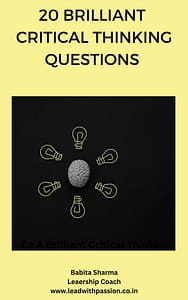
1. Identification of a situation or problem.
The first step of critical thinking requires identifying a situation or problem clearly and taking into account all the factors influencing it.
After getting a clear picture, you dive deeper into the issue and its potential solutions.
Take stock of the situation, or the burning question and think along these lines –
Who is doing what?
What could be the reason for this happening?
What are the results?
How could the results change?
2. Research the source of information.
Arguments can be misleading when you compare different arguments about the issue.
The facts and data presented to support those arguments may lack context or come from some unreliable sources.
So researching the source of information and evaluating them independently is very critical to making the right decisions.
Not all sources will be equally valid.
Identify red flags.
Red flags can be identified if there is no clear answer to your questions.
For every person offering the argument, check their source of information and look for unsourced claims.
3 Recognize the biases
To be a strong and smart critical thinker, you need to evaluate the information objectively and recognize the biases around the arguments presented by each side.
This can be very difficult because at times even the smartest thinkers fail to recognize it.
You also need to be aware of your own biases and set them aside so that they do not cloud your judgment.
To be able to see things clearly from different viewpoints, learn to challenge the source of your thoughts and assumptions and check whether they are credible or not.
Use these questions to guide you while evaluating the information.
Who will benefit from it?
What is the objective behind this source of information?
Does it take into account all the information that does not support its beliefs or claims?
Is it overlooking, ignoring, or missing out on any information that does not support its claims and beliefs?
Is it using unnecessary language to impact others’ perception of a fact? Check the language used by the source.
4. Drawing Inference
Inference means to conclude based on evidence and reasoning.
It is important to note that not all inferences will be correct.
Gather as much information as possible before concluding.
Information needs to be assessed properly. The data needs to be compiled properly and analyzed.
Raw data will not give you any meaning.
First, skim for clues. Have an overview of things and then ask yourself -what do you think is going on?
Brainstorm and discover potential outcomes based on past experiences.
5 .Determining the relevance of the information
It is quite challenging to figure out what is the most important piece of information that you must consider.
Many times it so happens, that the information that seems important can be only a minor point to consider.
It is very tricky in challenging situations what you must consider and what you must not.
So the best thing you can do is to keep the end goal in mind.
Your end goal may be to identify a trend, find a solution or get x amount of sales.
When you use the end goal as a base, it serves as a guide to determine the relevance of the information.
Then you can take well-informed judgment on what is important and what is irrelevant.
Another technique you can use is to make a list of data points.
Rank them in order of relevance.
You will find two to three relevant pieces of information which rank at the top of your list. The rest can be ignored.
You can drill down further and narrow down your choice to one most important things to consider.
6. Questioning
The ability to question things is no doubt very essential to thinking critically.
In situations that demand critical thinking, taking everything at face value can prove to be disastrous.
You must be curious to know the truth and nurture your curiosity productively.
Ask probing and open-ended questions about things you see in your daily life and take some time to ponder on them.
Read the post –”58 Brilliant Critical Thinking Questions Every New Manager Must Master .”
CONCLUSION
Thinking critically is vital for anyone looking to have a successful career and a fruitful professional life.
Critical thinking requires many different skills like gathering information, analytical thinking, identifying the right information, identifying biases, evaluating, establishing the relevance, questioning curiously, clear thinking, reflective thinking, foresight, open-mindedness, patience, creative thinking, and decision making.
Your ability to objectively analyse and evaluate complex subjects and situations will always be useful. Unlock your potential by practising and refining the six critical thinking skills above.
If you’re looking to improve your skills in a way that can impact your life and career moving forward, then practice Critical thinking by –
1 Make critical thinking a habit
2 Debate everything
3 Go through diverse reading material of good quality.
4 Practise claim evidence reasoning.
5 Learn from everything.
6 Make critical thinking a game.
7 Adopt critical thinking as a mindset.
8 Explore the benefits of critical thinking.
Read the Post –16 HABITS THAT WILL HELP NEW MANAGERS MASTER CRITICAL THINKING
I hope you have found the post helpful.
What steps are you missing out on in becoming a better Critical Thinker? Please share your thoughts in the comments box below.

